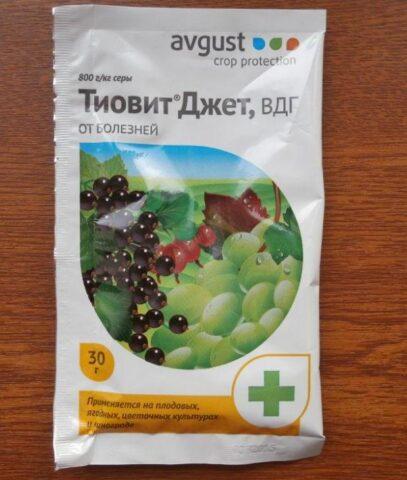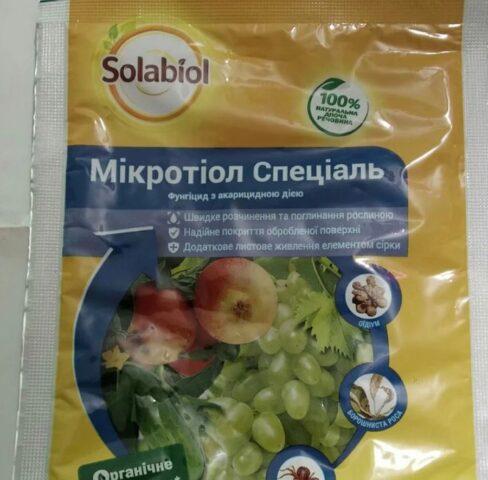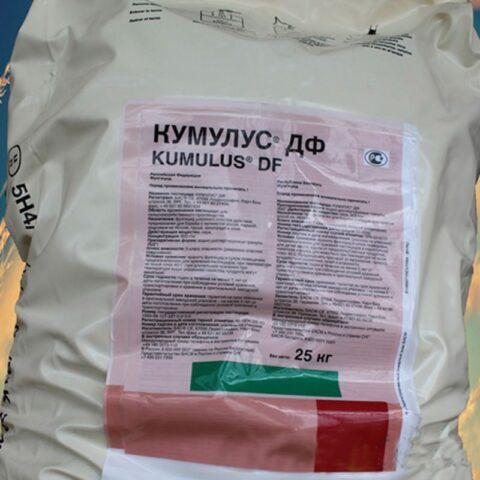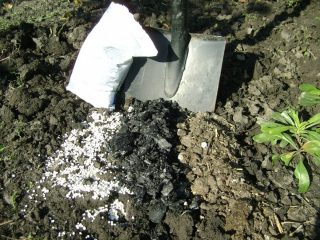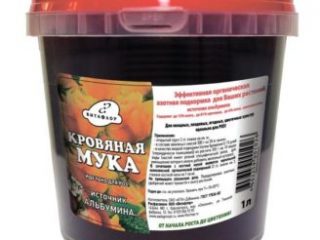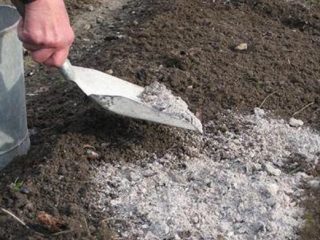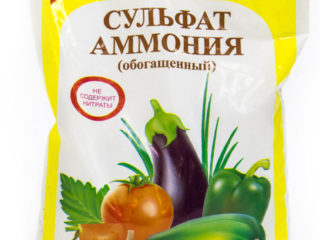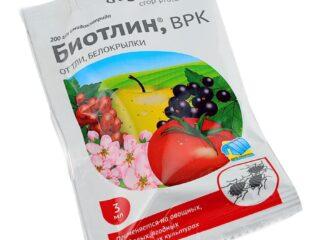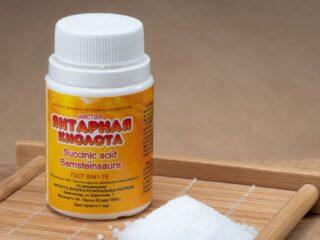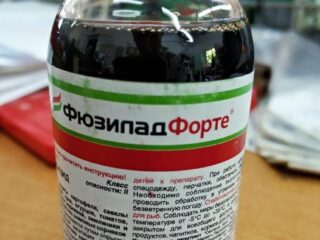Content
- 1 What is the difference between colloidal sulfur and regular sulfur?
- 2 Composition of colloidal sulfur
- 3 What is colloidal sulfur used for?
- 4 What plants is colloidal sulfur used for?
- 5 Advantages and disadvantages
- 6 How to dilute colloidal sulfur in water for processing
- 7 Treatment of garden and vegetable gardens with colloidal sulfur
- 7.1 Spraying grapes with colloidal sulfur
- 7.2 Treatment of currants with colloidal sulfur
- 7.3 Colloidal sulfur for pear
- 7.4 Colloidal gray for strawberries
- 7.5 Colloidal sulfur for cucumbers
- 7.6 Colloidal sulfur for garlic
- 7.7 Colloidal sulfur for tomatoes
- 7.8 Application of colloidal sulfur for cabbage
- 7.9 Treatment of roses with colloidal sulfur
- 8 Precautionary measures
- 9 Compatibility of colloidal sulfur
- 10 Colloidal sulfur analogues
- 11 Conclusion
- 12 Reviews on the use of colloidal sulfur in the garden
The use of colloidal sulfur is often practiced in gardening when plants are damaged by diseases and pests. The drug is highly effective and remains quite safe.
What is the difference between colloidal sulfur and regular sulfur?
Colloidal sulfur is a type of regular sulfur, but contains certain impurities that enhance the beneficial effect of the drug. It looks like a yellow powdery substance with a grayish tint. May also be sold as water-soluble granules.
Composition of colloidal sulfur
The main part of the drug is ordinary sulfur. It accounts for up to 95% of the total volume. In addition, colloidal sulfur includes surfactants, sodium thiosulfate, lignosulfonic acids and monopotassium phosphate.
In its normal state, the drug remains passive, but when it gets on the surface of plants, it begins to interact with protein structures and releases fumes that are toxic to fungi and pests. Colloidal sulfur does not accumulate in the tissues of agricultural crops and in the soil.
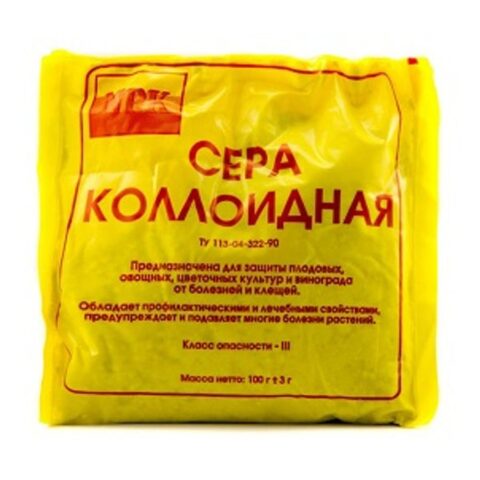
The effectiveness of colloidal sulfur increases with increasing air temperature
The drug is produced in small sachets of 20 g and in bags of 50 kg. When diluted with water, the substance forms a suspension and is poorly soluble in alcohol.
What is colloidal sulfur used for?
Sulfur is widely used in gardening for the prevention and elimination of fungi and insect pests. In particular, the product benefits:
- for powdery mildew and blackleg;
- with grape oidium;
- with anthracnose and ascochyta;
- for scab;
- with gray rot;
- when damaged by ticks and other pests.
The drug not only protects plants, but also serves as a useful fertilizer for them. Sulfur is often added to the soil in the spring as a fertilizer.
What plants is colloidal sulfur used for?
Colloidal sulfur can be used as a fungicidal and insecticidal agent for a wide variety of crops. In particular, the drug is used to treat:
- vegetables - tomatoes, zucchini, sugar beets, cabbage, cucumbers and peppers;
- fruit trees - pears and apples;
- berry bushes - currants, gooseberries, strawberries and blueberries;
- melons and watermelons;
- flower crops.
The product can be used for spraying ornamental trees and medicinal herbs.
Advantages and disadvantages
Colloidal sulfur fertilizer has numerous benefits. The advantages of the product include:
- effectiveness against harmful insects;
- safety for humans, animals and useful crops;
- economical consumption;
- low cost;
- toxicity to most pathogens of fungal diseases.
However, sulfur has certain disadvantages:
- when carrying out treatments, it is necessary to protect the respiratory organs and body from the vapors of the drug;
- Spraying should be done at temperatures up to 35 ° C - in extreme heat, sulfur causes leaf burns.
The drug must be used strictly according to the instructions. In this case, colloidal sulfur against pests will give a good effect and will not worsen the health of the treated crops.
How to dilute colloidal sulfur in water for processing
The use of colloidal sulfur in the garden must take into account the characteristics of a particular crop. But there is also a general algorithm for preparing a solution for therapeutic and preventive treatments. It looks like this:
- The required amount of sulfur powder is poured into a clean container.
- Dilute the preparation with warm water and stir thoroughly.
- Add another 1 liter of liquid.
- Stir the sulfur a second time.
- The resulting homogeneous mixture is diluted with 8 liters of clean water.
- Stir the solution again so that no sediment remains in it.
It is recommended to prepare sulfur immediately before processing crops. Upon completion of spraying, the remaining product is disposed of. Treatments are carried out at a temperature of 18-27 °C.During the season, up to five sprayings are allowed.
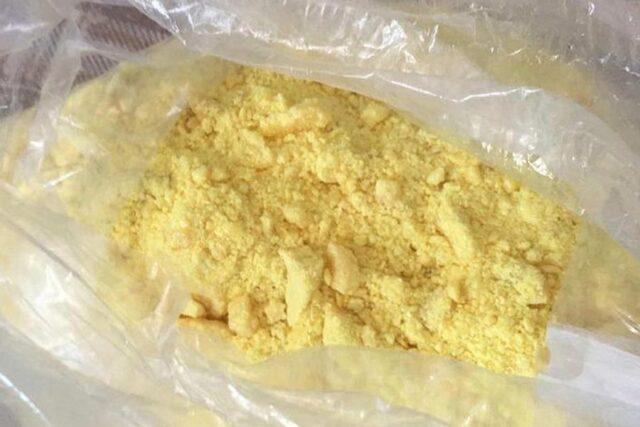
Plants can be dusted with dry sulfur, but first it is mixed in equal proportions with talc or ash
Treatment of garden and vegetable gardens with colloidal sulfur
To properly dilute colloidal sulfur for spraying, you need to take into account the recommendations for specific vegetable and fruit crops. Some plants require a drug with a higher concentration, while others require a weak solution.
Spraying grapes with colloidal sulfur
The use of colloidal sulfur in viticulture is in demand in the treatment of oidium. If the vine is slightly affected by a dangerous fungus, prepare the following solution:
- About 50 g of sulfur powder is diluted with a small amount of liquid.
- The resulting preparation is added with a bucket of water.
Spraying is carried out in dry and sunny weather up to five times per season. It is recommended to carry out the first treatment in the spring to prevent the disease.
Treatment of currants with colloidal sulfur
Colloidal sulfur for currants in the spring helps protect the berry bush from American powdery mildew. The working preparation is prepared as follows:
- Stir 40 g of dry powder in a small amount of water.
- Add 10 liters of liquid to the mother liquor.
The resulting product is sprayed over the currant crown three times a season at weekly intervals. Treatments are carried out from early spring until the buds begin to appear.
Colloidal sulfur for pear
You can prepare a solution of colloidal sulfur to spray pears to protect against scab and powdery mildew.The therapeutic and prophylactic drug is made according to the standard algorithm:
- Prepare a mother solution based on 50 g of sulfur powder.
- Top up the suspension with a bucket of water.
Spraying of pears is carried out during the period from the beginning of sap flow to the flowering of the crop. After the buds open, treatments are stopped so as not to damage pollination.
Colloidal gray for strawberries
Colloidal sulfur against spider mites on strawberries helps prevent the appearance of the pest in the period preceding flowering. To spray the crop you need:
- Dilute 50 g of the drug with water to form a suspension.
- Dilute 10 liters of liquid and mix thoroughly.
Typically, treatments are carried out from early spring until the flowers appear. It is also allowed to spray the berry crop after harvesting.
Colloidal sulfur for cucumbers
It is recommended to dissolve colloidal sulfur for spraying if there is a high risk of powdery mildew affecting cucumbers. The preparation for a crop growing in open ground is prepared as follows:
- Stir 40 g of powder in water until smooth.
- Add 10 liters of liquid to obtain a solution of weak concentration.
Spraying is carried out when the first symptoms of the disease appear.
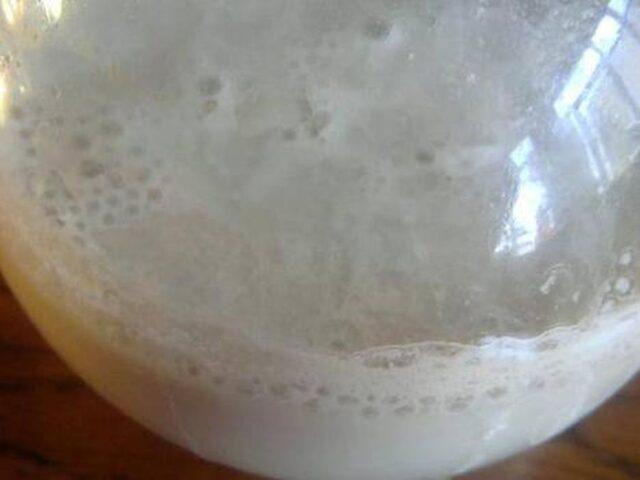
When preparing a sulfur solution for greenhouse cucumbers, only 20 g of the drug must be diluted in a bucket of water
Colloidal sulfur for garlic
Colloidal sulfur is used to acidify the soil when growing garlic. The product stimulates the active development of the crop and prevents the occurrence of fungal diseases, and also enhances the taste and aroma of the ripening heads.
The solution for treating the culture is made as follows:
- Stir only 15-20 g of powder in a small amount of liquid.
- Add a bucket of water to reduce the concentration.
Spraying is carried out according to the standard algorithm 3-5 times per season outside the flowering period. The preparation can also be used for watering garlic at the root.
Colloidal sulfur for tomatoes
The use of colloidal sulfur in the garden in summer is recommended when growing tomato bushes. The product helps protect plantings from blackleg at the seedling stage. Use the drug like this:
- Dilute 40 g of sulfur powder in a bucket of water.
- Three days before transferring the tomatoes into the ground, the planting holes are treated.
Mature bushes can be sprayed leaf by leaf to protect against powdery mildew and rot.
Application of colloidal sulfur for cabbage
The properties of colloidal sulfur are beneficial when growing cabbage - the product helps protect the crop from clubroot. As in the case of tomatoes, processing is most often carried out at the seedling stage. The algorithm looks like this:
- 40 g of sulfur powder are diluted in a bucket of water.
- The resulting product is used to water the holes prepared for cabbage three days before planting the seedlings.
The drug not only disinfects, but also enriches the soil. With the use of sulfur as a fertilizer, cabbage develops more actively and gains greater juiciness.
Treatment of roses with colloidal sulfur
Colloidal sulfur helps protect not only vegetable and fruit plants, but also ornamental plants from powdery mildew and other ailments. The drug can be sprayed on roses for good flowering and prevention of pests and diseases.
The solution is made like this:
- Add 100 g of powder to 1 liter of lukewarm water and stir.
- Top up to a volume of 10 liters.
- Mix thoroughly again.
The resulting preparation is sprayed on plantings over an area of 100 m2. Treatments begin in the spring and continue until the rose enters the active flowering phase.
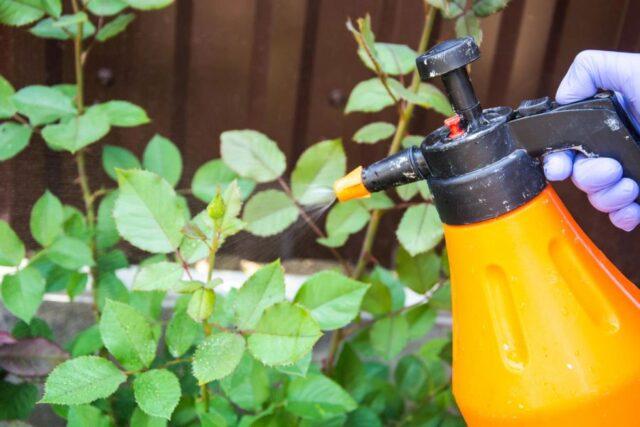
During the budding period, spraying with sulfur is carried out so that the drug falls mainly on the leaves of the rose
Precautionary measures
According to the hazard class, colloidal sulfur belongs to the third or fourth degree, depending on the manufacturer. The drug does not pose an immediate threat to humans, beneficial insects and mammals.
Despite this, basic precautions must be observed when using the solution:
- wear a respirator and safety glasses to prevent sulfur vapors and small splashes from entering the mucous membranes and respiratory tract;
- dilute the powder only in special containers not intended for cooking or storing food;
- carry out treatments at wind speeds of no more than 5 m per second;
- Before starting spraying, remove bees from the area and do not let them out of the hives for the next 24 hours.
In the spring, grapes and other crops are treated with colloidal sulfur in the morning or evening hours. The product should not be sprayed over plants in bright sunshine, but spraying should not be carried out in the rain either.
Compatibility of colloidal sulfur
Colloidal sulfur can be diluted for processing grapes and other plants together with Bordeaux mixture. But the drug is not used together with iron sulfate and organophosphate insecticides. It is not recommended to use it simultaneously with substances that contain mineral oils.
Colloidal sulfur analogues
If the drug is not commercially available, you can replace colloidal sulfur with other products containing the main active ingredient. In particular, the following are used as analogues:
- Thiovit Jet. A product with acaricidal and fungicidal properties is good against spider mites and powdery mildew.
The beneficial effect of using Tiovit Jet appears within 24 hours
- Microthiol Special. A sulfur-based drug is used for oidium and scab to treat grapes, greenhouse tomatoes, apple trees and pears. The product does not harm beneficial insects.
The protective effect of the drug Microthiol Special lasts up to 20 days
- Cumulus. The main active ingredient of the drug is sulfur. The product is used to treat currants, gooseberries, grapes and fruit trees against fungal diseases.
The effect after using the drug Cumulus lasts up to 1.5 weeks
Colloidal sulfur analogues should be used in accordance with the instructions on the package. Spraying is usually carried out in warm but sunny weather up to five times per season.
Conclusion
The use of colloidal sulfur is recommended primarily for the prevention of fungal diseases and pests in the garden. The drug reliably protects vegetable and fruit crops from damage, and also serves as a useful fertilizer for them.
Reviews on the use of colloidal sulfur in the garden
